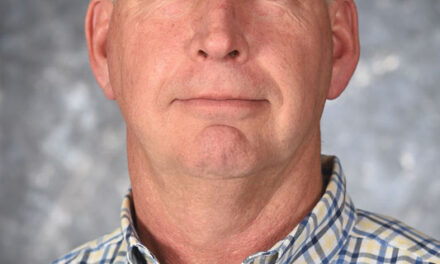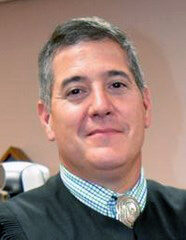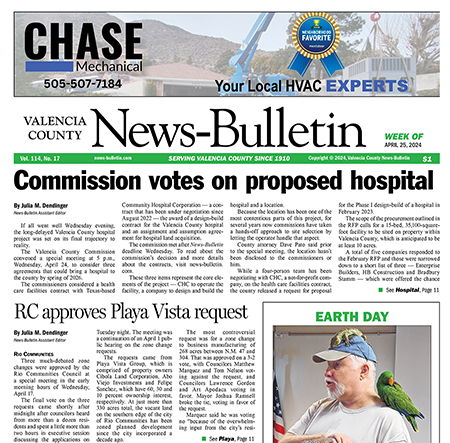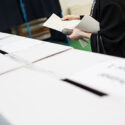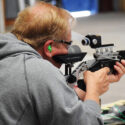Court report
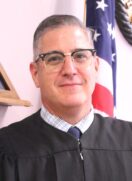
Judge John Chavez
Anyone who has spent time in the military is familiar with the term brother or sister in arms. It denotes an unspoken camaraderie founded in shared experiences even when those experiences differed in either time or location.
I am certain the same is true for other professions — teachers, law enforcement, medical practitioners and many others share unique bonds.
I trust the same is true of mentors, those members who have walked our path before. They now guide us like a caring parent. They do this through words and examples, and they encourage or chide when proper. Among many, mentors in my past include Carter, Rossi, Romero, Hall and Mitchell.
There are also giants in our chosen professions — individuals who exemplify our chosen vocation and bring voice to our own developing thoughts and world view. We may have the occasion to hear them speak or read their words, but it is seldom that we get to meet them in person.
Gen. Gordon R. Sullivan was the 32nd chief of staff of the U.S. Army, an office held by historic names like John J. Pershing, George C. Marshall and Omar Bradley. Gen. Sullivan was one of my giants. He passed away earlier this year.
There is really no reason that I should have ever met Gen. Sullivan. When he was the chief of staff of the Unites States Army, I was an Army captain with five echelons of command easily between him and me. As senior leaders often do, he visited units and soldiers.
I first met Gen. Sullivan on one such trip. He was visiting Fort Bliss, Texas, and I sat in an auditorium where he addressed fellow officers in training. We were getting ready for command assignments in company-sized units of about 100 soldiers.
Each chief of staff of the U.S. Army faces unique challenges, and his was to transform a Cold-War army on the heels of a Desert Storm victory to a post-war army.
The U.S. Army would be much smaller than before, from 760,000 to 535,000 soldiers. This would have enormous impacts not only on the army but on the soldiers and families, too. In visiting units, he hoped to impart his vision so that we would be better able to do our part.
In his address, I took two nuggets of wisdom that have served me well. In tribute to him, I share them with you.
“Take care of your piece of the army and do not concern yourself with the things you cannot control.”
He told us when we worry about things beyond our control, it distracts us from doing the things for which we are responsible.
He told us when you make your part of the army better, others will notice and will be inspired to do the same. He also exampled a domino effect in that if your part of the army was better, then the next larger part was better, too, and likewise, the next larger part, and so on.
“Make the assumption that others are trying to do the right thing, even if you disagree with how they are doing it.”
He was not only asking us to take care of our part of the army, but he was also asking us to trust him to take care of the army as a whole. I did trust him.
Both became points on my north star and I often return to them to evaluate what, why, or how I am doing something.
I might have forgotten who said these things if fate had not caused us to cross paths repeatedly over the years. When stationed in Germany in 1995, Gen. Sullivan visited my unit, and I had the opportunity to show him how I was taking care of my piece of the army.
My wife headed up the unit Family Readiness Group and shared with him what she was doing to support families in Germany.
In 2007, when I was commanding a battalion in South Korea, now retired Gen. Sullivan visited my unit. In retirement, he was serving as the president of the Association of the United States Army (AUSA) and touring the different commands to find out how AUSA could better serve soldiers and their families.
During this visit, I spoke to him about some of the volunteer work my unit was doing in support of the local community. My wife spoke to him about the work she was doing supporting spouses separated from their service members during their one-year tour of duty in South Korea. We also shared a few laughs over 13-year-old photos of his earlier visit to Germany.
A few months later, at an AUSA convention in Washington, D.C., Gen. Sullivan presented my family as the U.S. Army Volunteer Family of the Year. Always a great speaker, he spoke of service that day — something that he was very well versed in both word and example.
We last cross paths when I was attending the U.S. Army War College in Carlisle, Pennsylvania in 2009. I had the pleasure of introducing him to my classmates. He gave remarks to our class that day as we were preparing to leave to locations around the world. He spoke of the legacy of service — again, something he knew much about.
Whatever your vocation, I challenge you to do your best, be mindful of your responsibilities, and show a level of trust in those around you. This advice has served me well and I trust it will serve you well, too.
Gen. Gordon R. Sullivan, Sept. 25, 1937 — Jan. 2, 2024, Rest in Peace.
(Magistrate Judge John R. Chavez is the magistrate in Belen. He is a native of Valencia County and is a retired U.S. Army colonel.)
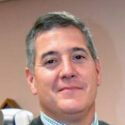
Judge John Chavez, guest columnist
Magistrate Judge John R. Chavez is the magistrate in Belen. He is a native of Valencia County and is a retired U.S. Army colonel.

